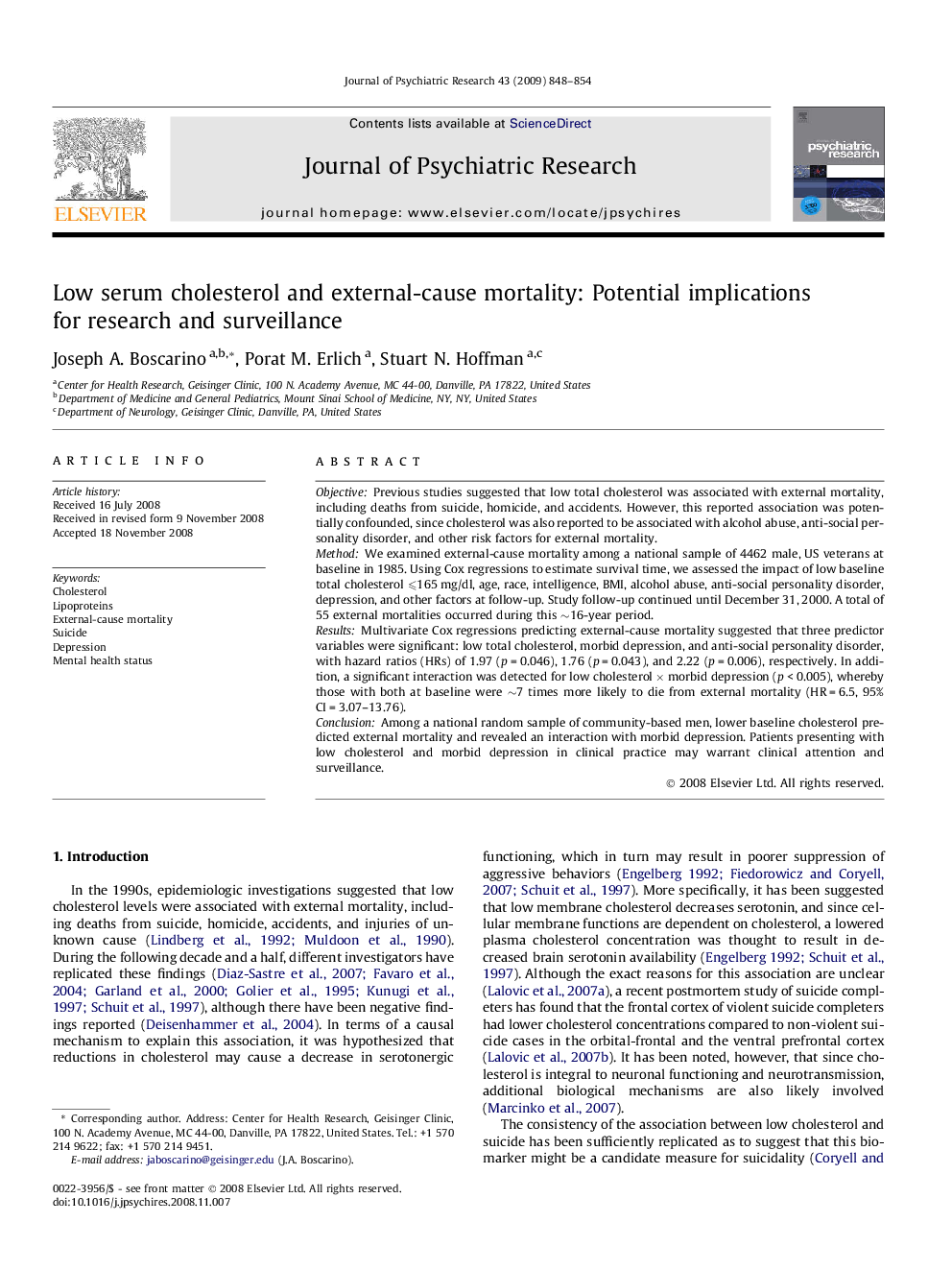| Article ID | Journal | Published Year | Pages | File Type |
|---|---|---|---|---|
| 327556 | Journal of Psychiatric Research | 2009 | 7 Pages |
ObjectivePrevious studies suggested that low total cholesterol was associated with external mortality, including deaths from suicide, homicide, and accidents. However, this reported association was potentially confounded, since cholesterol was also reported to be associated with alcohol abuse, anti-social personality disorder, and other risk factors for external mortality.MethodWe examined external-cause mortality among a national sample of 4462 male, US veterans at baseline in 1985. Using Cox regressions to estimate survival time, we assessed the impact of low baseline total cholesterol ⩽165 mg/dl, age, race, intelligence, BMI, alcohol abuse, anti-social personality disorder, depression, and other factors at follow-up. Study follow-up continued until December 31, 2000. A total of 55 external mortalities occurred during this ∼16-year period.ResultsMultivariate Cox regressions predicting external-cause mortality suggested that three predictor variables were significant: low total cholesterol, morbid depression, and anti-social personality disorder, with hazard ratios (HRs) of 1.97 (p = 0.046), 1.76 (p = 0.043), and 2.22 (p = 0.006), respectively. In addition, a significant interaction was detected for low cholesterol × morbid depression (p < 0.005), whereby those with both at baseline were ∼7 times more likely to die from external mortality (HR = 6.5, 95% CI = 3.07–13.76).ConclusionAmong a national random sample of community-based men, lower baseline cholesterol predicted external mortality and revealed an interaction with morbid depression. Patients presenting with low cholesterol and morbid depression in clinical practice may warrant clinical attention and surveillance.
